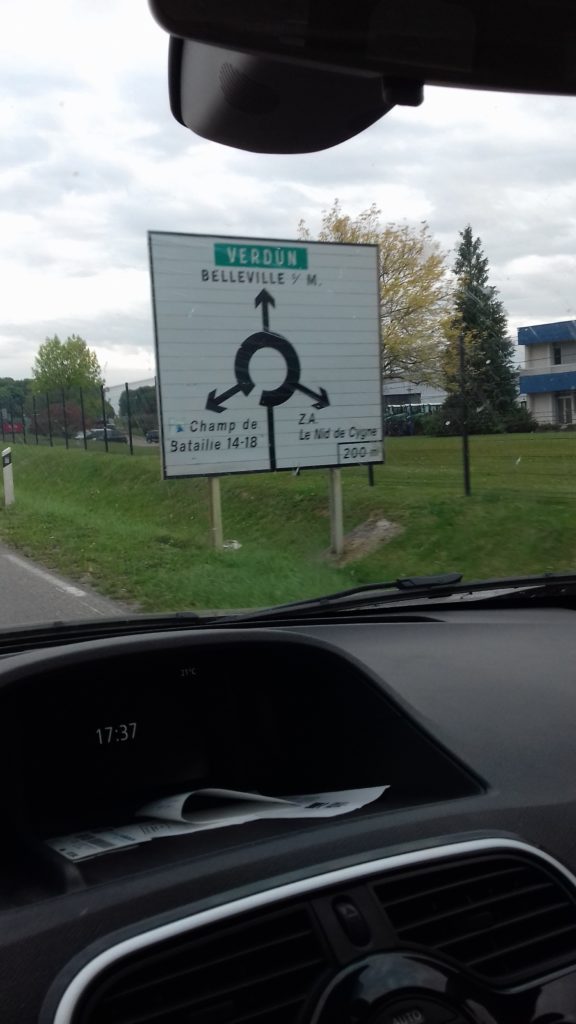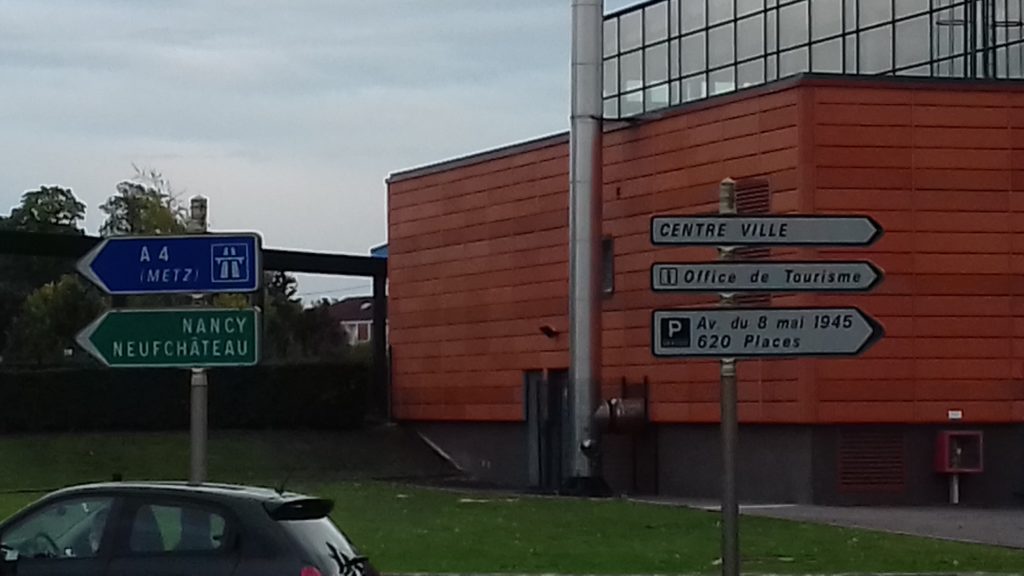This post originally appeared on Meuse-Argonne.com.
Few American drivers are used to roundabouts in the United States. Driving through them, especially on crowded, urban streets, can be a bit daunting for new arrivals. That said, the roundabouts do work in France; and the Webmaster has learned to prefer them over long traffic lights during his stay. Hopefully, the comments below will reduce drivers’ stress levels a bit.
Roundabout Basics in France:
The basic rule is quite simple: Vehicles already in the roundabout usually have priority (i.e. right-of-way) over those not in the roundabout facing a “Cédez le Passage” or a “Vous n’avez pas la Prioritié” (Give-way) sign. Note that traffic flows counter-clockwise.
(https://www.justlanded.com/english/France/Articles/Travel-Leisure/Rules-of-the-road)
One thing that complicates the basic rule is that French drivers seem to make a dash for the roundabout; wanting to get into it before anyone can get in ahead of them and slow their trip down.
Roundabout Etiquette:
During his multi-month stay the Webmaster has finally noted a nuance to roundabout etiquette: More polite drivers will signal their intended exit point to other drivers using their turn signals. In a standard roundabout with four entry / exit points, one would do as follows:
Taking the first right (i.e. turning 90 degrees): Use the right turn signal
Going straight through (i.e. 180 degrees): Use no turn signal
Taking the third right (i.e. turning 270 degrees): Use the left turn signal
Signaling one’s intention is a bit more complicated to do when there are more than four entry / exit points in a roundabout. In that case, one should simply use the turn signal shortly before reaching one’s exit.
Verdun, the City of Roundabouts:
For a small city (population about 18,000) Verdun has an amazing number of roundabouts. Depending on where one is headed, it is not uncommon to drive through eight to twelve roundabouts during a visit to or around Verdun. At some roundabouts, the number of street signs is staggering; especially when watching the traffic and trying to make a fast decision.
Mentally, the driver should have an idea of where he/she wants to go in relation to Verdun–BEFORE heading into the city. (Think of a clock with Verdun in the middle.)
Green traffic signs generally point the driver in the direction of the next major city:
12:00 is Sedan–American battlefields along the Meuse-River and French battlefields on the Right and Left Banks of Verdun
1:30 is Longwy–French battlefields on the Right Bank of Verdun
3:00 is Metz–French battlefield on the Right Bank of Verun
4:30 is Nancy–Cora and other large stores as well as restaurants and hotel chains. St. Mihiel Salient.
6:00 is Neufchateau–St. Mihiel Salient
9:00 is Châlons-en-Champagne–Argonne Forest, Varennes, etc. Left Bank of Verdun.
Blue traffic signs will point the driver to the A4 AutoRoute; but they can also be used to head in a general direction.
A4 (Paris) will take one West.
A4 (Metz) will take one East.
“Centre Ville” will ultimately take one to the downtown shopping district–albeit after a few roundabouts.
Final Word:
Most important: Stay alert, but relaxed while driving through roundabouts. If one needs to, simply go round again. In Verdun, one can always make a U-turn at the next roundabout.
P.S.
Stepping out of “professional character” for a moment, the Webmaster is borrowing the title from the lyrics of a Benny Hill song he heard years ago titled “Go Round Again.”
Header photo courtesy of blank, via Unsplash.


Leave a Reply